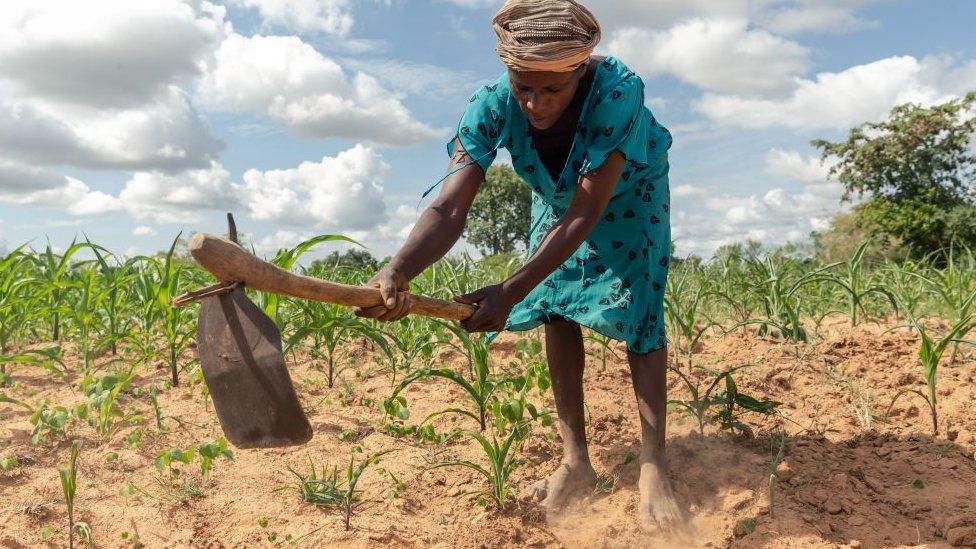Zimbabwe's President Mnangagwa declares national disaster over drought
- Published

The president has said the country needs $2bn to address the effects of the drought
Zimbabwe's President Emmerson Mnangagwa has declared a national disaster to tackle the prolonged drought crisis.
Mr Mnangagwa said on Wednesday the country needs $2bn (£1.6bn) to tackle hunger caused by low rainfall which has wiped out about half of the maize crop.
The grain shortage has pushed up food prices and an estimated 2.7 million people will face hunger.
Neighbouring Zambia and Malawi have also recently declared states of disasters due to drought.
Some fear that the drought sweeping southern Africa will be one of the worst in decades.
The World Food Programme said 13.6 million people are currently experiencing crisis level of food insecurity in the region.
"Top on our priority is securing food for all Zimbabweans. No Zimbabwean must succumb to or die from hunger," Mr Mnangagwa told journalists.
Zimbabwe is already grappling with high inflation driven by food prices.
The country now joins the regional scramble to find enough maize on the international market.
The lack of rain induced by the El Nino global weather pattern has also affected electricity production, as Zimbabwe relies on hydroelectric power.
Zimbabwe was once the breadbasket of southern Africa, but in recent years has suffered bouts of severe drought affecting crop and cattle.
The worst drought in living memory occurred in 1992, when a quarter of the national cattle herd perished.
But the dry spells have returned with increasing frequency. Droughts were declared in 2016 and again in 2019.
Not all droughts are due to climate change, but excess heat in the atmosphere is drawing more moisture out of the earth and making droughts worse.
The world has already warmed by about 1.2C since since the industrial era began and temperatures will keep rising unless governments around the world make steep cuts to emissions.